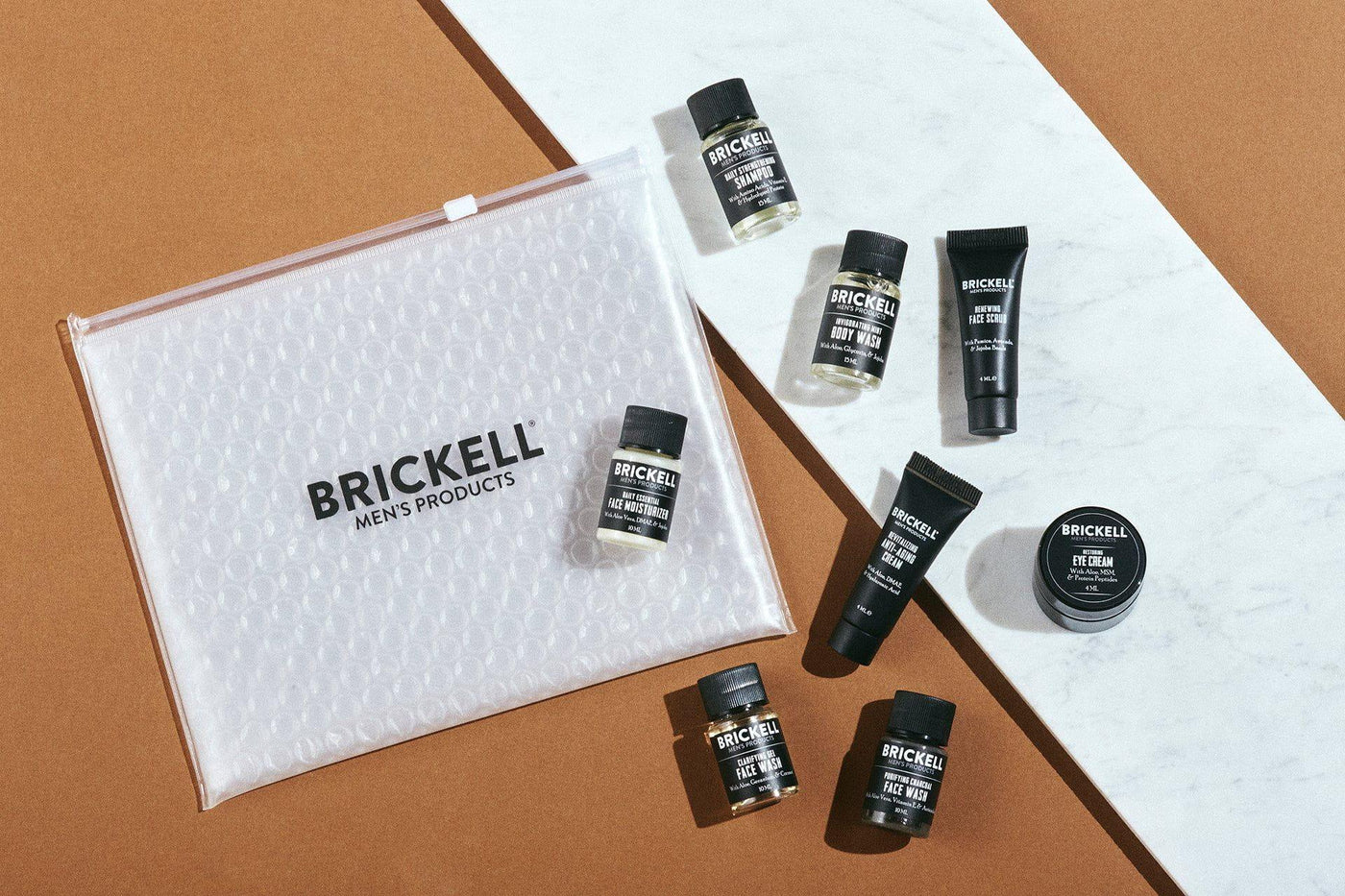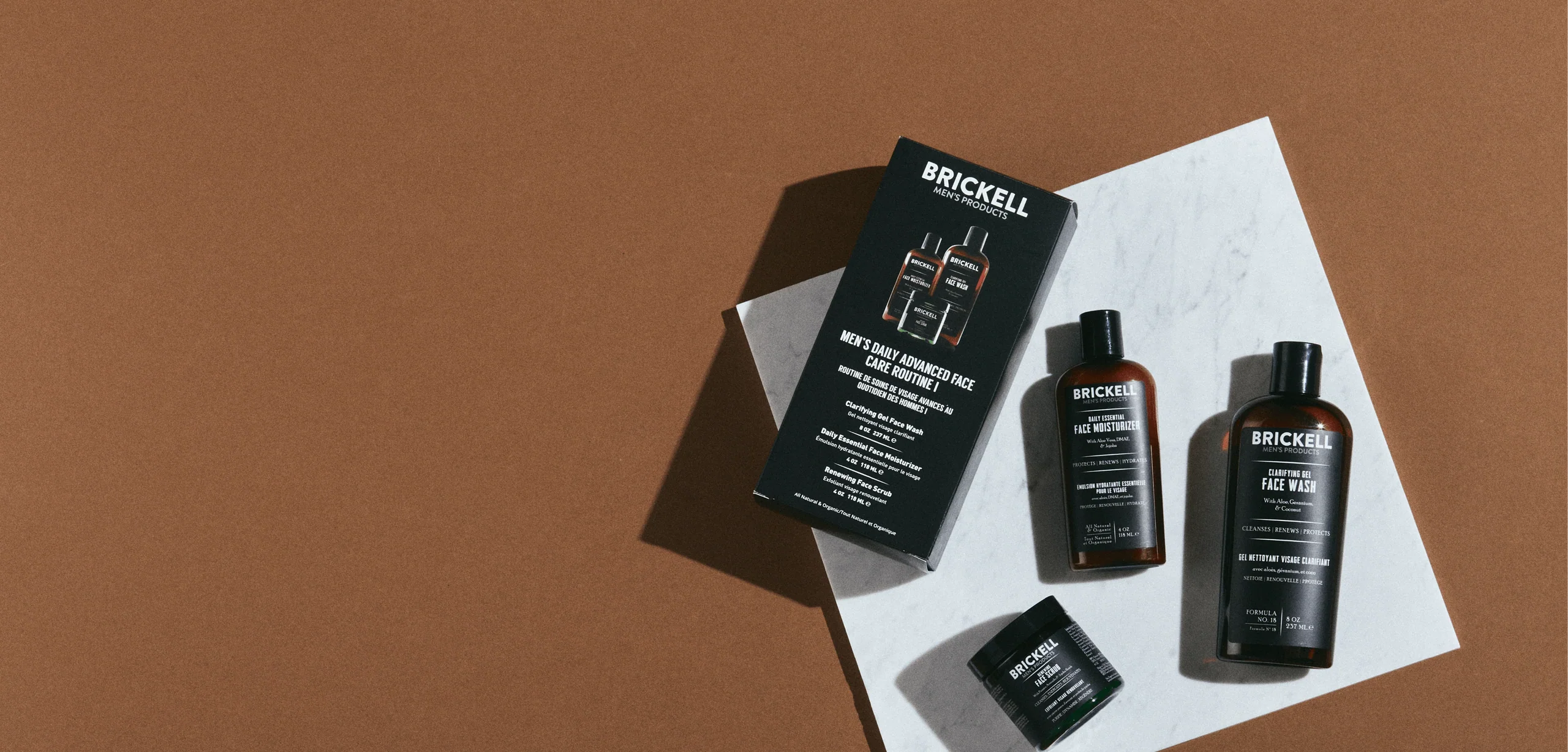The Grooming Manual
What’s So Different About Men’s and Women’s Deodorants?

Guys - you’ve probably been in this situation before. You’re in a rush. You can’t find your deodorant anywhere. And you absolutely need at least a swipe or two to avoid atomic-radiation levels of BO. So what do you do?
You grab your girl’s deodorant - the one with the floral pattern container with swatches of pink and purple designs. And you hope it’s enough to keep you smelling decent through the rest of the day.
Chances are you probably survived that day just fine. Because - at the end of the day - there aren’t too many major differences between men’s and women’s deodorants.
What differences do exist? What’s the best, safest way to deal with BO? And how can you choose the best deodorant or anti-perspirant for you?
A Brief History of Deodorant
People have been trying to mask their body odor since ancient times. There is evidence that the ancient Egyptians used scented oils on their underarms to keep the smell under control. That custom was passed on to the ancient Greeks. They took bathing and the application of aromatic oils quite seriously.
The first deodorant trademarked in the United States was Mum in 1888, according to the New York Times. It was followed by Everdry - the first antiperspirant - 15 years later, which was “so stinging and acidic that it ate through clothing.”
Today you have myriad choices of deodorants and antiperspirants. Solids. Roll-ons. Sprays. Gels. It’s good to have options.
Men’s vs. Women’s
Men and women don’t sweat all that differently. Research conducted in 2010 separated participants into four groups. Then researchers compared their sweating responses during exercise. Those groups were fit men, fit women, unfit men, and unfit women. The fit men experienced greater sweating than any other group. And that was even though they didn’t activate more sweat glands than the fit women did.
Despite plenty of research, the science of sweating remains a bit mysterious. Scientists still can’t explain exactly why women sweat more than men. Or even the precise process of how anti-perspirants work.
So why the big differences between men’s and women’s deodorants? For the most part, it’s a marketing effort. Brands make an effort to establish their products as adventurous, everyday, professional, or fun.
Apart from packaging and fragrances, you’ll find the same core ingredients in all deodorants. Antiperspirants usually contain a form of aluminum to plug up sweat glands.
Choose the Right Product
Which deodorant or antiperspirant should you add to your men’s grooming arsenal? It all comes down to personal preference. Find a scent you like in the form that’s most comfortable for your skin - whether that’s a solid, a gel, a spray, or something else.
If you have sensitive skin, you may do best with an unscented product. It will still contain all the bacteria fighting ingredients you need to prevent BO, just without the strong fragrances.
Keep in mind the difference between deodorant and antiperspirant. The former kills bacteria to prevent odor. The latter plugs sweat glands to reduce wetness.
Of course, you need to stay clean and remove debris on your skin if you want to stay stink-free. So make sure you’re using a body wash for men with gentle, natural cleansers.
If you prefer a natural soap bar, that’s fine too. For oily skin, an exfoliating soap scrub bar is the best choice. Regardless of your preference, you need a soap that will work with your deodorant to keep you smelling great all day.
Look (and Smell) Your Best
Have you stolen a few swipes from your girl’s deodorant? No big deal. In the end, her deodorant isn’t so different from yours. Keep up with your men’s grooming routine and use the best body grooming products for men. You will look and smell your best every day.

